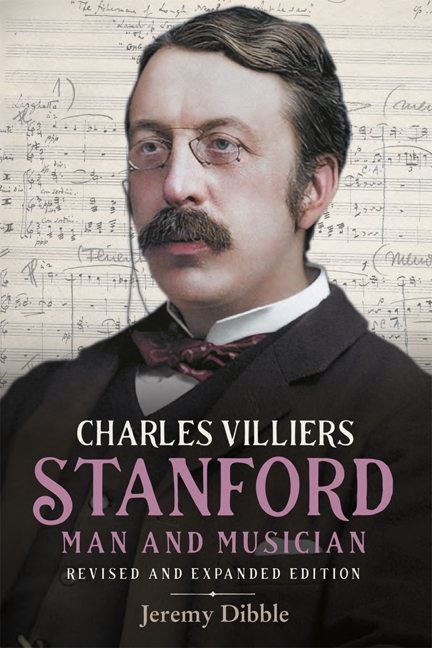Book contents
- Frontmatter
- Dedication
- Contents
- List of Illustrations
- List of Music Examples
- List of Analytical Tables
- Preface and Acknowledgements
- Supplementary Introduction to the Revised and Expanded Edition
- List of Sigla and Abbreviations
- I Early Influences and Impressions, 1852–70
- II Formative Years, 1870–87
- III Recognition, 1888–1901
- IV The New Generation, 1901–14
- V War and Decline, 1914–24
- Appendix: List of Works
- Select Bibliography
- Index of Works
- General Index
- Irish Musical Studies Previous volumes
10 - Resignation from Leeds, Patriotism and Political Isolation (1910–14)
Published online by Cambridge University Press: 12 May 2024
- Frontmatter
- Dedication
- Contents
- List of Illustrations
- List of Music Examples
- List of Analytical Tables
- Preface and Acknowledgements
- Supplementary Introduction to the Revised and Expanded Edition
- List of Sigla and Abbreviations
- I Early Influences and Impressions, 1852–70
- II Formative Years, 1870–87
- III Recognition, 1888–1901
- IV The New Generation, 1901–14
- V War and Decline, 1914–24
- Appendix: List of Works
- Select Bibliography
- Index of Works
- General Index
- Irish Musical Studies Previous volumes
Summary
Stanford's career as a conductor had enjoyed a modest revival with his appointment in 1906 as conductor of the Sunday Concert Society, but owing to considerable financial losses on the concerts, the Society decided to give up its contract with the LSO and hand the entire operation over to Henry Wood and the Queen's Hall Orchestra. Visits to provinces were now a rarer event. Apart from invitations to conduct at the Three Choirs Festival, he made one visit to Birmingham in March 1908 and another to Liverpool in March 1909 to conduct his ‘Irish’ Symphony. The following year he was invited to conduct the Ode to Discord at the rapidly expanding Brighton Festival and, as a guest of the Dover Musical Festival, he was asked to direct a revival of The Battle of the Baltic. However, with more established works, Stanford was increasingly willing to attend performances of his music rather than take the baton. He was, for example, happy to stand by while Hamish MacCunn (as part of the Beecham Opera Season) undertook the direction of Shamus at His Majesty's Theatre in May 1910, and George Bennett (organist of Lincoln Cathedral) conducted the Stabat Mater at the Lincoln Festival in June. He was also ready to fulfil other roles, whether in the capacity of accompanist to Plunket Greene (who remained the foremost interpreter of his Irish song cycles and folk-song arrangements), or as President of the Cheltenham Choral Society and the Rodewald Concert Society in Liverpool.
Henry Wood continued to promote his music; his wife Olga Mikhailov sang two of Stanford's songs from The Triumphs of Love – ‘I think that we were children’ and ‘O flames of passion’ – specially orchestrated for her to sing at a Promenade Concert on 23 October 1909. It was her last public appearance. In great pain she managed stoically to perform with her usual professional deportment, but soon after she was removed to a nursing home, underwent an operation, but died on 20 December. Landon Ronald, who had made his name as an assistant conductor with the LSO, and would soon establish his reputation with the New Symphony Orchestra, conducted Stanford's First Irish Rhapsody in Amsterdam and Rome to great acclaim and revived the Sixth Symphony at Queen's Hall on 2 December 1909.
- Type
- Chapter
- Information
- Charles Villiers StanfordMan and Musician, pp. 475 - 516Publisher: Boydell & BrewerPrint publication year: 2024

